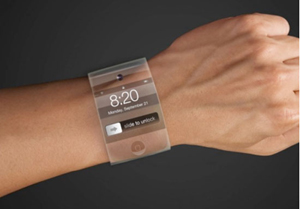By including so many healthcare-related features in its much-anticipated iWatch, Apple is apparently discovering what established medical device companies have known for a long time: The FDA’s ways make the timetable for releasing a product in the U.S. pretty unpredictable.

That is it at least the latest rumor—this one from Chinese media citing “Apple insiders.” The report, repeated on the G4Games blog, is that the iWatch has been developed but is not being manufactured yet because it needs some kind of FDA certification.
Meanwhile, media outlets including The Wall Street Journal and Reuters are reporting that a launch is expected in October, according to BGR.
That Apple wants to have healthcare related features on the iWatch—and potentially steal thunder from wearable health trackers such as Fitbit and Jawbone—seems pretty apparent.
The company has hired some top medical device industry talent. Two of them—the Stanford University-educated electrical engineer Wren Nancy Dougherty and the medical technology entrepreneurship program founder Divya Nag—were recently featured in Qmed’s 30 Under 30.
Apple also recently announced HealthKit, a glorified healthcare and fitness app bundled into iOS8 that can potentially communicate patient health data to hospitals. The company also announced a partnership with the Mayo Clinic, which is exploring the integration of HealthKit, potentially enabling the app to share health information with clinicians.
But in seeking to make the iWatch mind-blowingly amazing, Apple could be garnering extra scrutiny from the FDA.
Could the iWatch contain a sensor that measures glucose via sweat? Could it include other sensors and software that cause the FDA to consider it an actual diagnostic device, versus and educational or information tool?
Or could the issue of FDA-related delays be overblown?
Refresh your medical device industry knowledge at MEDevice San Diego, September 10-11, 2014.
The blog Apple Toolbox recently received a Freedom of Information Act-generated response from the FDA that provided a summary of what Apple executives discussed with FDA officials during a meeting last December. And it shows some of the parameters Apple is likely navigating with the iWatch.
FDA officials, for example, went over the agency’s medical mobile device guidance with Apple executives, telling them about the importance of intended use, how the FDA is more likely to regulate the software that puts sensors to use, and how glucometer marketed toward diabetics would be considered a regulatory medical device.




